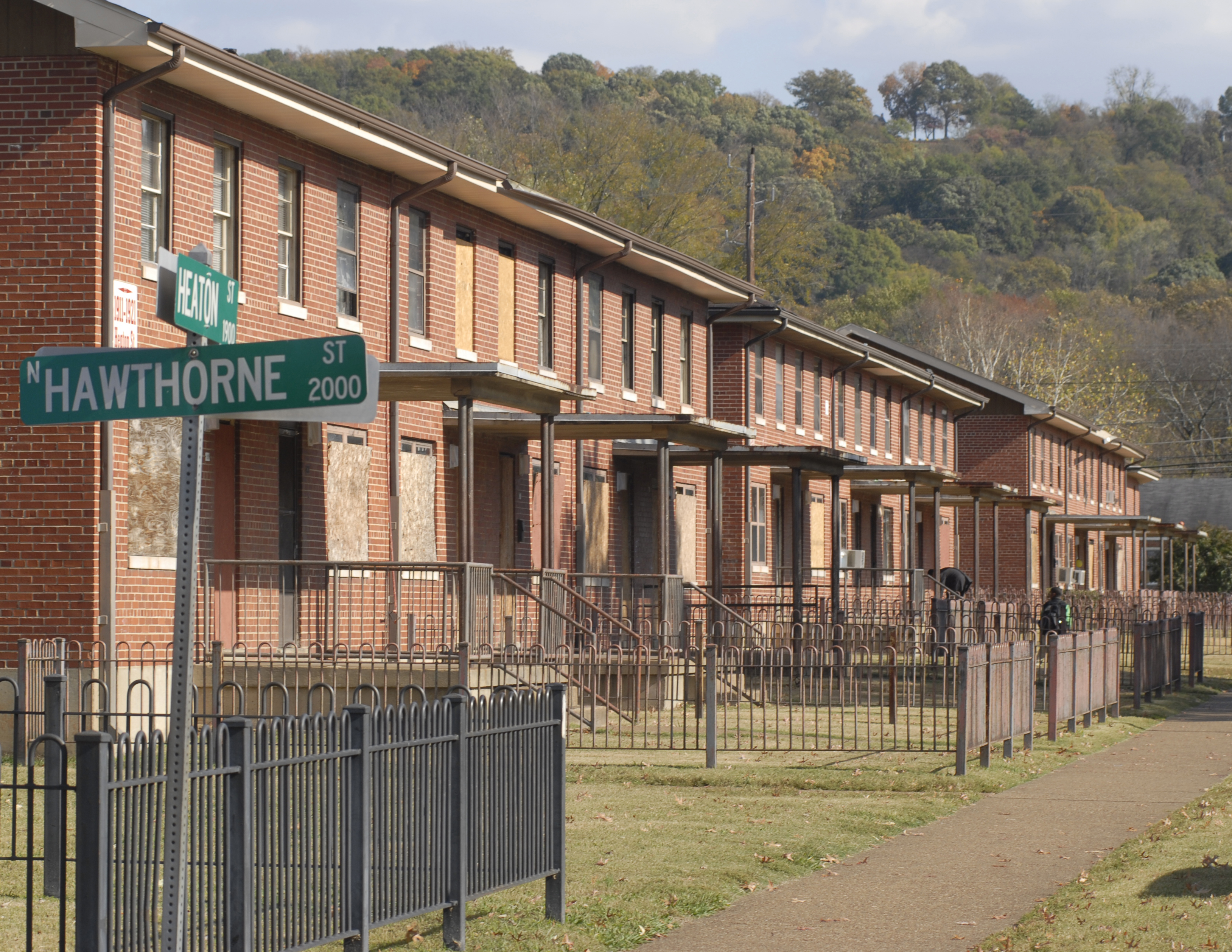For the first time in its 73-year history, the Chattanooga Housing Authority is putting more low-income residents in private rentals than in public housing.
The shift is part of a national trend away from deteriorating public housing developments that have become too costly to maintain. And the milestone in Chattanooga is a sign of even more changes to come for a safety net that the poor have relied on since College Hill Courts, the city's first public housing development, was built in 1941.
"It's not tomorrow, but sometime in the very near future public housing as we know it will no longer exist," said Eddie Holmes, CHA's board chairman.
The number of public housing units available in Chattanooga dropped from 3,692 in 1999 to 2,952 this year as deteriorating facilities were torn down or otherwise became unusable.
Edward Steiner Apartments, which has 50 units, is scheduled for demolition this year. When the site is rebuilt, only 24 units will be allocated as public housing.
And if HUD approves, the 440-unit Harriet Tubman Homes will be torn down next year. It will be the sixth public housing site torn down in the last nine years.
Meanwhile, CHA's Housing Choice voucher program grew from 1,250 vouchers used in December 2000 to 3,140 this year.
Housing Choice, formerly known as Section 8, provides vouchers from the federal Department of Housing and Urban Development to pay rent.
However, not enough vouchers are available for all who need them in Chattanooga, CHA officials said.
More than 5,300 people applied for 200 vouchers awarded in an October lottery drawing. But there may be more vouchers available this year and in 2012, officials said.
Holmes said the switch from public housing to private rentals is "a change, and it's going to be hard."
"Those of us who relied on public housing for a long time will feel a tight squeeze. The availability is not going to be there," he said.
TOO COSTLY
The agency plans to offer housing vouchers to Harriet Tubman residents if CHA sells or demolishes the site.
Some residents have asked whether the switch to vouchers is the best option for the poor and wonder where they will live if public housing goes away.
"Who's accepting vouchers?" said Joe Clark, a public housing resident of more than 20 years. "I doubt you can take them to the waterfront property. Can you take them to the Southside? Is there a list where people accept them? It's like giving a person food stamps without a grocery store."
But HUD says aging public housing units have become too costly to sustain.
"The government coffers are only so big," said Donna White from the HUD office in Washington, D.C. "Housing in a number of communities is so severely distressed that it is more cost-effective for housing authorities to demolish as opposed to rehab. There's only so many bandages you can put on a public housing development."
Tubman, built partially in 1953 and 1963, is the second-largest public housing complex in the city. Holmes said it would take $33 million to get the complex in good condition.
President Barack Obama's administration allocated about $200 million in its 2012 budget to convert up to 255,000 public housing units across the country to long-term, project-based rental assistance contracts.
"The public housing we grew up with, the multifamily units like College Hill Courts, those entities are going away, and there is a shift to the Alton Park Villages concept where we tried to lessen density," Holmes said.
The Villages at Alton Park includes 200 units of public housing. It replaced Spencer J. McCallie Homes, once the largest public housing site in the city with more than 600 units. Demolition of McCallie Homes started in 2001 and was completed in 2003.
EXPANDING VOUCHERS
The resumption of a different kind of voucher is expected to improve the availability of rental units for low-income residents.
By the end of 2012, the CHA wants to issue 429 project-based Housing Choice vouchers.
Project-based vouchers differ from tenant-based vouchers because their funding is attached to the unit instead of the tenant. This provides more security for landlords, because if a tenant leaves, the landlord still gets an income as long as the unit is occupied.
More than 160 vouchers intended to specifically help low-income or no-income residents who are mentally ill, homeless or veterans have been awarded or are in the works. Recipients include Chattanooga Neighborhood Enterprise, Chattanooga Homeless Coalition, Steiner Redevelopment, AIM Housing and the Joe Johnson Mental Health Center.
The vouchers may be used to build new housing or to rehab existing housing. Project-based vouchers will produce at least 50 units, but agency owners could leverage them to get more, said Holmes.
This is the first year CHA has issued project-based vouchers since 2002. They were dropped because of lack of interest in the Chattanooga-Hamilton County area but were resurrected when the agency began receiving inquiries from businesses, said Tammie Reeves, CHA's Housing Choice voucher program director.
The increase in project-based vouchers is also in keeping with federal funding. The Obama administration's 2012 budget increases money for project-based vouchers while reducing funding for public housing operating expenses, according to news reports.
Contact Yolanda Putman at yputman@timesfreepress.com or 423-757-6431.
